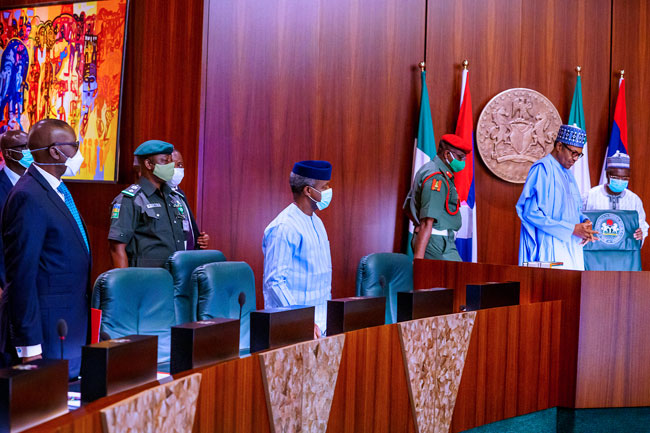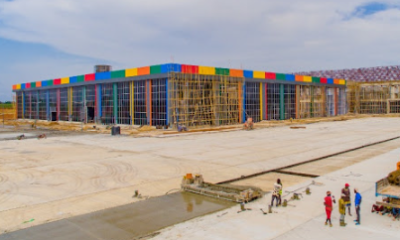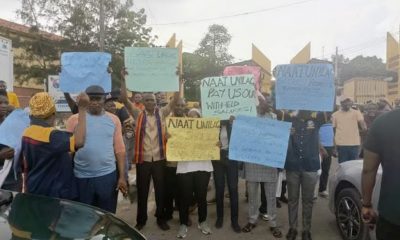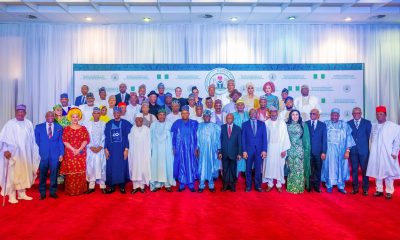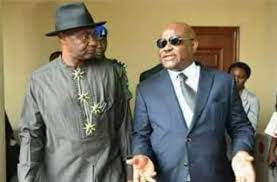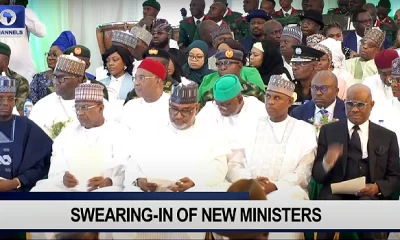The appointment of Prof. Ibrahim Gambari as the Chief of Staff to President Muhammadu Buhari has brought about seeming power shift in the presidency as well as reviving the culture of democratic governance in the seat of power. Apparently, the innovations that Gambari may introduce in the presidency could prompt the need for overhaul of the governance structure from the State House, Abuja, down the line to the ministers and heads of department and agencies. This, a presidency source disclosed, may have been precipitating palpable fear among service chiefs, ministers, and heads of MDAs.
Investigations revealed that public officers who were playing errand ‘boys’ for the late Chief of Staff, Abba Kyari, than delivering on their jobs, may have a hectic time to adjust and deliver. Time may run out on some these principal officers in government as the new regime may be moving fast before such adjustments.
The service chiefs heading the various military arms – Nigerian Army, Nigerian Navy, Nigerian Air Force, may have reasons to fret over the new power structure in the presidency. Some whose retirement from the military service but were shielded by the late CoS, Abba Kyari, may have no hiding place or such protection anymore. The probable woes of the service chiefs may be compounded in the remembrance of their undermining the authority of the National Security Adviser (NSA), Babagana Monguno, and were reporting to CoS Abba Kyari; boycotting the NSA in relating with President Muhammadu Buhari.
The new power structure in the presidency brought about by the appointment of Gambari as CoS, has practically restored the authorities of the NSA in the presidency. It would appear that Prof Gambari does not want to go beyond the powers of the his office or usurp the powers of any other principal officer in the presidency, as his predecessor, Abba Kyari did.
The new power structure in the presidency profoundly played out on Thursday when President Buhari held a meeting the service chiefs at the State House, Abuja. Restoring the conventional protocol in the presidency, the National Security Adviser, Babagana Monguno, stood in to announce the resolutions at the National Security Council and the President’s decisions and directives.
In the ancien regime of Abba Kyari, the presidential media aides would have written long essays as press release by the president.
The return of the NSA to his authority constitutes severe phobia for those who undermined his authority during their romance with late Abba Kyari. The Chief of Army Staff, Tukur Buratai, may have been recalling his additional punitive actions against Monguno after the NSA letter to President Buhari against the late CoS, hypothetically, to please late Abba Kyari.
The National Security Council meeting on Thursday was attended by the Vice President, Professor Yemi Osinbajo; the Minister of Defence, Retired Major General Bashir Magashi; Minister of Justice and Attorney General of the Federation, Abubakar Malami; the Minister of Foreign Affairs, Geoffrey Onyeama, etc.
The Chief of Defence Staff, General Abayomi Olonisakin, led the service chiefs to the NSC meeting at the State House, Abuja.
The service chiefs present at the meeting include the Chief of Air Staff, Air Marshal Sadique Abubakar; the Chief of Naval Staff, Ibok Ekwe Ibas; and Army Chief of Staff was represented by the Chief of Policy and Plans, Lieutenant General Lamidi Adeosun.
The Inspector General of Police, Mohammed Adamu; and Director General of the Department of State Services (DSS), Yusuf Bichi, were also present at the meeting.
Furthermore, there were innuendoes that some ministers allegedly bribed their way in the old order to secure the ministerial appointments. However, the ministers that have not performed to the optimum may have reason to be troubled within their souls in the new order. The non-performing ministers and heads of departments and agencies that have not been performing but purported to be hiding under the shield of the late CoS, may have reasons to be perturbed over likely removal.
Invariably, heads may roll.
Generally, the approval of President Buhari for the implementation of the Orosanya Committee reform recommendations constitutes serious threat to several agencies and departmental heads. The implementation may lead to the extinction of some agencies and departments of the federal government.
Ironically, the President’s approval for the implementation of the Orosanya Committee recommendations was made after the demise of the former CoS. It would appear that there may be no protection of any kind in the implementation of the recommendations under the new order.

 Latest3 days ago
Latest3 days ago
 Trends4 days ago
Trends4 days ago
 Business6 days ago
Business6 days ago
 Football6 days ago
Football6 days ago
 Featured6 days ago
Featured6 days ago
 Health5 days ago
Health5 days ago
 Football5 days ago
Football5 days ago
 Business6 days ago
Business6 days ago
